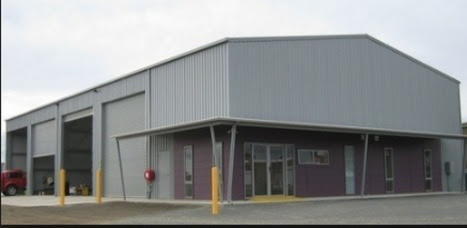5 Real-Life Lessons About Warehouse On Rent
A
warehouse is a commercial building for storage of goods. Warehouses are used by
manufacturers, importers, exporters, wholesalers, transport businesses,
customs, etc. They are usually large plain buildings in industrial parks on the
outskirts of cities, towns or villages. They often have loading docks to load
and unload goods from trucks. Sometimes Warehouse On
Rent In Bhiwandi are designed for the loading and
unloading of goods directly from railways, airports, or seaports. They often
have cranes and forklifts for moving goods, which are usually placed on ISO
standard pallets loaded into pallet racks. Stored goods can include any raw
materials, packing materials, spare parts, components, or finished goods
associated with agriculture, manufacturing, or commerce.
There
are many different types of warehouses, including:
·
Public warehouses - owned by
government or other agencies to store goods for the public
·
Private warehouses - owned by
businesses to store their own goods
·
Bonded warehouses - used by customs to
store dutiable or restricted goods
·
Free trade warehouses - used by businesses to
store goods which can be imported or exported without paying customs duties or
taxes
·
Cold storage warehouses - used to store
perishable goods at low temperatures
·
Automated warehouses - using automated
systems to store and retrieve goods.
The
use of warehouses dates back to the early days of civilization. The first known
use of warehouses was in Mesopotamia around 3000 BC. By the early 19th century,
the industrial revolution had led to the development of large factories and the
need for storage space for raw materials, finished goods, and equipment.
How
To Find The Perfect Ware House
1.
Location
The
first rule of real estate is also the first rule of warehousing: location
matters. A warehouse needs to be situated in an area that has good access to
transportation networks (roads, railways, ports, etc.), which will make it easy
to get goods in and out. The surrounding area should also be safe and secure,
to protect your inventory from crime.
2.
Size matters
The
size of your warehouse should be based on the amount of inventory you need to
store. If you have a lot of small items, you'll need more space than if you
have a few large items. Make sure to leave room for expansion, too, so you
don't have to move again in a few years.
3.
Climate control is crucial
Depending
on the type of goods you're storing, you may need to invest in climate-control
features for your warehouse. If you're storing perishable goods, for example,
they'll need to be kept at a certain temperature to stay fresh. If you're
storing electronics, you'll need to protect them from dust and humidity.
4.
Security is essential
To
protect your inventory from theft, you'll need to have a good security system
in place. This includes things like CCTV cameras, alarms, and guards. You may
also want to consider insurance, in case something does happen.
5.
Keep it organized
A
well-organized warehouse is a more efficient warehouse. Take the time to plan
out your storage space, so that you can easily find and retrieve items when you
need them. This will save you time and money in the long run.
Final
Thought
When
it comes to Warehouse
On Rent In Bhiwandi, there are a few things you need
to keep in mind. Location, size, climate control, security, and organization
are all important factors to consider. By following these tips, you can ensure
that your warehouse is set up for success.





Comments
Post a Comment